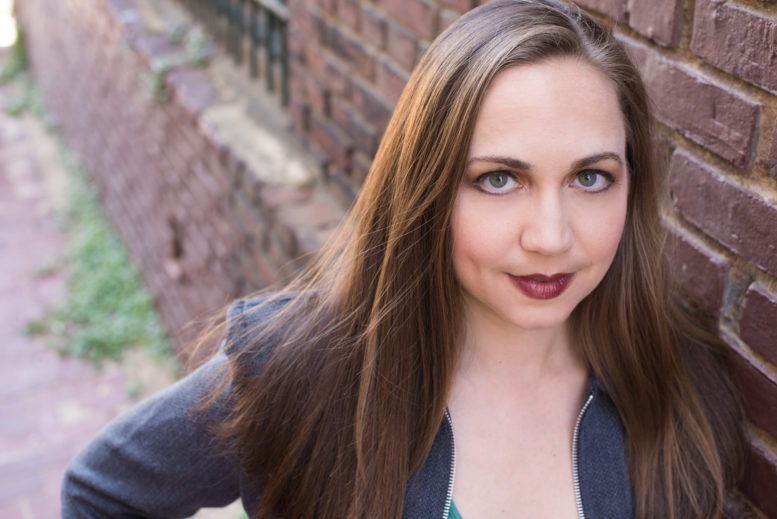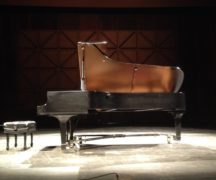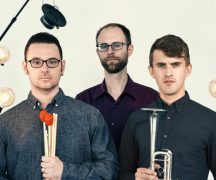By DAVID DUPONT
BG Independent News
Comic timing brought composer Christopher Dietz and singer Stacey Mastrian together.
Dietz, who teaches composition at Bowling Green State University, heard the Seattle-based soprano perform on a contemporary music concert.
She sang a comic piece, and Dietz also had a comic piece performed on the same bill. Two funny pieces on one contemporary music recital is extraordinary, Dietz said.
“I should talk to this person,” the composer said. He was impressed by her musical technique, “impeccable intonation” as well as her “sure sense of the personality of the piece.”
“She sold it with such confidence,” he said. That she was able to execute a difficult contemporary piece and perform it in an engaging manner, set her apart, Dietz said. “This is a special kind of singer.”
They’ve been in touch ever since then, and now with funding and timing falling in line, Mastrian is now visiting BGSU.
She’s working with students, both composers and singers.
Mastrian will perform a recital, Post-Puccini: The Contemporary Voice, Saturday at 8 p.m. in Bryan Recital Hall on campus. She will perform vocal works composed between 1923 and the present by Luciano Berio, John Cage, Alfredo Casella, Thomas DeLio, Bruno Maderna, Stephen Lilly, and Luigi Nono. The recital has ample selections representing Mastrian’s own particular specialty, art songs from Italy.
She always loved art songs, but she wondered why there were so few from Italian composers. “People may know Respighi.”
Mastrian is of Italian extraction. The family name was Mastroianni “until a few letters got chopped off” during the immigration process in the early 20th century.
“Italian has always resonated with me,” she said. She started studying the language when she was in high school.
This meshed well with her growing interest in contemporary music. She did her undergraduate work at Catholic University in Washington D.C. where she had limited exposure to contemporary music. She did not care for what she heard in music history class.
But during the orientation period at the start of her graduate studies at the University of Maryland College Park, she met composers her age. Mastrian, the daughter of an engineer, was fascinated by the spectrographs they were studying. So she got to know them and their work. She performed in a piece for four voices and found percussion. Then other student composers started writing for her as did faculty.
Within the wide range of music she sings from Monteverdi to now, contemporary music, especially from Italy and America, has a special hold on her.
On Saturday’s recital she will sing a rarely performed major work by Luigi Nono for electronics and voice from 1964. The piece incorporates recordings of factory workers and factory sounds. In these recordings the workers talk about the toll their jobs took on their mental and physical health as well as their family life. Nono “cared about bringing to light some of the problems of the world and expressing hope for a better future,” Mastrian said.
It’s important for singers to find music they particularly cherish as she does the Italian art songs, Mastrian said. “People really respond to things you care about.”





